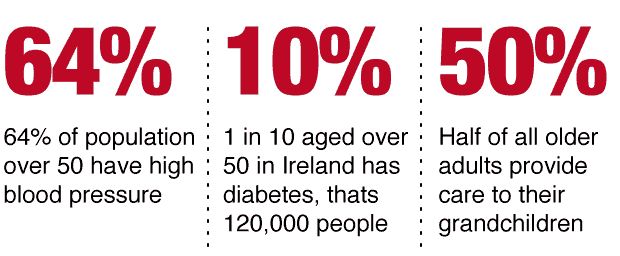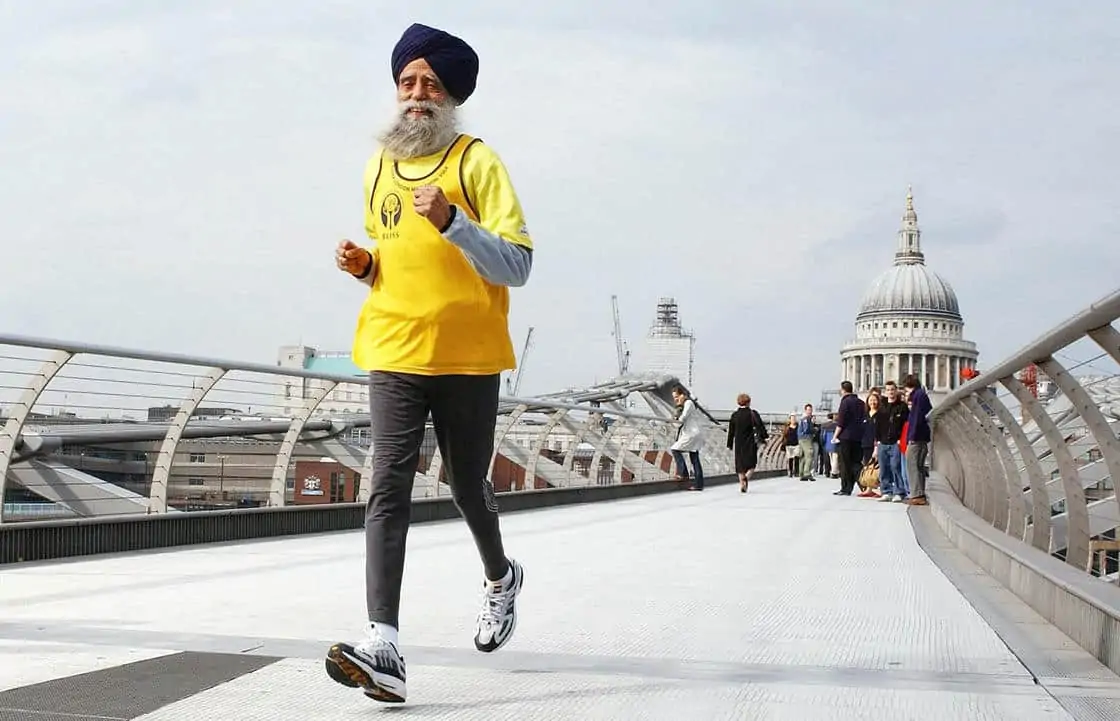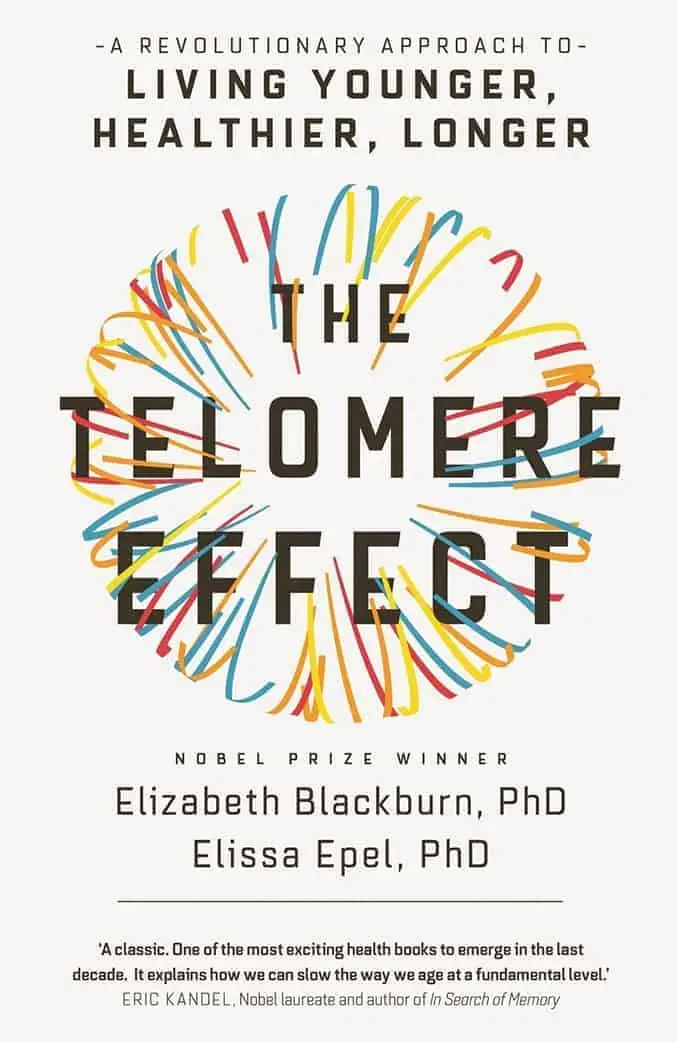Reading time: 12 minutes
A serious problem of aging is discrimination, called ageism. Older people, who are made to feel like a burden on society, can start to value their lives less worthy. This pushes them into high-risk zones of depression and social isolation, both of which can shorten lives.Not strangely, the pace of aging and dying speeds up as we age. Our risk of dying at fifty years is 3X than at thirty. Data suggests there is a 2% chance of dying at 68, which increases to 4% at 76, and to 30% by 97.
What’s highly bizarre is once you reach 105 years, aging seems to stop.
A 2018 study says aging begins to slow down after 80 years of age. Then it hits a plateau and the odds of dying stop rising beyond the 105th birthday. Scientists now debate if can we live beyond the oldest human on record — Jeanne Calment who died at 122 years of age in 1997.
[With research from positive psychology, we can learn the art of positive aging.]

How Old Is Old?
From a child, we go on to become young, then middle-aged, and finally old. When do we get slotted into old age? Usually, it is between 40 and 55 we are in the middle-age, and at 60 we become a senior.
So, what are we between 55 and 60 years — slightly old, soon-to-be old, or old adults?
The scientists who study aging, the gerontologists, have a distinct set of ideas. They first consider people old when they are 65 years of age. Over that, they divide the decades into specific bands:
- Between 65-74 are the young-old,
- Between 75-84 are the old-old, and
- Over 85 are the oldest-old.
What Causes Aging?
Aging is a result of a horde of causes that work in synergy. At the cellular and molecular levels, some of these causes are oxidative stress, glycation, side reactions, mutations, protein aggregation and misfolding, and telomere shortening. These progressive damages aggregate over time to cause aging at the organ and body level.
First, one thing is clear to present-day science: that the free-radical theory of aging (that proposed aging is mainly the result of a pile of damages caused by reactive oxygen species) is dead.
Here we discuss the factors that do, and do not, bring about these micro-sized and macro-sized changes of aging.
A) Factors That Control Aging
Drawing from three separate longevity studies that tracked the lives of 824 people, mostly male Harvard graduates, for more than 50 years, beginning in their teens, George Vaillant counts the factors that ‘do’ affect healthy ageing:
- Smoking: Quitting smoking by 45 or “not being a heavy smoker before age 50” the single most important predictive factor that influenced healthy aging.
- Mature abilities to adapt to situations: Vaillant called these “mature defenses,” and found them to be the second most powerful predictor of healthy aging.
- No alcohol abuse: This was found to be a factor that influenced both physical as well as psychological health.
- Healthy body weight: Obesity was found to be related to bad physical health, but had no effect on psychological health.
- Stable marriage: A stable marriage influenced both physical and psychological health.
- Better and higher education: According to Vaillant, education facilitates physical and psychological health by fostering an “appreciation of the causal connections between personal behaviors and their consequences.”
- Regular exercise: Physical exercise was linked to both physical and psychological health.
B) Factors That Do Not Control Aging
Vaillant also found there were some factors that do ‘not’ influence our healthy aging:
- Parents’ and grandparents’ age: Vaillant found that by age 70 to 75, there was no difference in ancestral longevity between those who were happy-well and those who were sad-sick.
- Warm childhood environment: The studies did not find any correlation between the psychological adjustment in young adulthood and healthy aging.
- Stable childhood temperament: “After age 70 childhood temperament did not distinguish the happy-well from the sad-sick.”
- Social class of parents: The social class of the parents and childhood family does not hold any sway among the older adults.
- Cholesterol levels at 50: Vaillant found that cholesterol levels “at age 50 did not distinguish the happy-well from the sad-sick or even from the prematurely dead.”
- Stress: The study found that the physical and psychosomatic symptoms related to stress before 50 did not correlate with physical health at 75.
If you are looking to dive deeper, read this research paper by Piotr Zimniak to find out what is the proximal cause of aging.
In the winter of old age, she smiled like the summer of youth.
— Happiness India Project
The Telomere Effect is a groundbreaking book that offers fresh advice on how to slow down aging and lengthen life. It is authored by the 2009 Nobel Prize winner Elizabeth Blackburn and health psychologist Elissa Epel.
The book looks at some highly informative findings, like how sleep and diet can affect our telomeres (the ends of our chromosomes) and how mothers who are highly stressed during pregnancy have children with shorter telomeres.
What Are The Pros And Cons of Aging?
Aging is already a high-priority current issue and is set to become the biggest medical problem of our future. There are certain advantages too along with the myriad disadvantages of aging.
A) Advantages of Getting Older
Positive aging is growing old healthfully and gracefully. Aging positively can give generously. As research suggests, older adults who are happy and relatively healthy can become assets to their communities rather than burdens (Allen, 2008).
Indeed, healthy aging does come with many rewards and benefits for the seniors as well as society, as we read above. A longer life brings with it new opportunities to serve others, not only for their families but also for their communities and societies.
Here are the advantages of getting old:
- Older people tend to experience more positive emotions and relatively fewer negative ones.
- Another upside of aging is the emotional range of older persons is more stable. They are less sensitive to the daily ups and downs happening around them, and negativity and stress affect them less.
- The older people try harder and invest more time and effort to better their surviving relationships, as they have a sense of limited time left. With age, the present meaningful relationships assume a higher priority than trying to meet new people or make new friends.
- As we age, we also tend to let go of those people who do not make us feel secure or supported. In a sense, we become emotionally wiser as we age.
- Anxiety attacks and depressive episodes happen less frequently. Older people feel fewer negative (as well as positive) emotions.
- With age, people get more optimistic. With age, we also tend to feel more contented with our life. We try harder to bond better with others. Our connections with people become more profound and satisfying.
- Age comes with valuing time more. As we sense we have less time on this earth, we learn to value time more wisely.
- Older people also choose meaningful relationships over casual or frivolous ones. They are less impulsive in creating new contacts with random strangers.
- They can see interpersonal problems from many points of view, rather than from a one-sided perspective.
- They also become better advisers, honed by temperance and experience.
- People of old age or tend to avoid too much food, fun, actions, and even sad events. It goes a long way in helping to safeguard their health.
- In some ways, memory gets better with age. The capacity to recognize patterns and regularities, and to predict accurately, improves over time. The whole process slows down, but the final results are better with aging.
B) Disadvantages of Getting Older
Let us discuss the three most important disadvantages of getting older:
- ageism
- loneliness and poverty
- physical diseases
1. Ageism
Of the many battles that a senior gets to fight during the day, the worst is the discrimination and devaluation of old age by society. Every person they meet seems to tell them they are old — and therefore as good as old furniture.
Ageism is stereotyping and discrimination against seniors because of their age. Looking close, we find this is the biggest challenge of the senior people.
Max Lerner in his America As A Civilization, 1957, wrote one of the earliest expressions of ageism:
The style of aging in America is not a graceful one. It is filled with constant efforts to fight off anxieties until one encounters what Martin Gumpert has called the “shock of aging” — the sharp recognition (usually associated with disease) that one is “done for” and the final loss of confidence that comes with it.
There come then, as Albrecht and Havighurst have put it, the “insults” that assail the aging person—the loss of physical attractiveness, the loss of life partners and friends through death, the loss of status, the loss of useful and respected roles in the family and culture, and the final insult of being imprisoned in a body which is the shell of its earlier self.
In any case, ageism, like racism, sexism, and homophobia, deserves better attention and steadier dialogue than it receives in our present world.
Old people are categorized as senile, rigid in thought and manner, old-fashioned in morality and skills… Ageism allows the younger generations to see older people as different from themselves; thus they subtly cease to identify with their elders as human beings.
— Butler, Why Survive? Growing Old in America, 1975
A longer span of life has brought in the fresh challenge of ageism. A study on 83,000 people of all ages in 57 countries found 60% of them felt the older people do not get respected.
How can a person make a positive transition into their golden years while battling ageism?
Ageism raises two vital questions to ponder upon:
- Can a senior make others see them as something more than a sluggish brain in a shuffling body?
- Can an old person be productive around the house and society in the best capacity for their age?
The answer to the first question — it is a long process to bring society to change their demeaning stance on aged people.
The answer to the second — Yes, they can. Sure. And it depends on this one thing above all: their health.
An ‘oldie’ can contribute positively to their family and society if they can maintain good health. Once they decide to age positively and start showing their usefulness, the young society may start changing their stand on aging people.
The first problem of aging is that there is both physical and mental loss of power and speed. Research, however, shows that with a little practice, older adults can perform just fine.
2. Loneliness and Poverty
Old age tows along the challenges of loneliness and poverty.
Growing old with a positive outlook can add years to one’s life. A study at Yale University involving 660 seniors aged 50 years or more showed those who held positive self-image lived up to 7.5 years longer than others who perceived aging negatively.

This longevity effect was so steady that it did not matter if it were a male or a female, came from a higher or a lower economic and social class, or lived alone or not.
3. Physical Diseases
When we grow old, every day becomes a challenge. From getting out of our bed in the morning to the time we go to sleep, and even sleep itself, each step is a troubling challenge.
High blood pressure, diabetes, kidney, and prostate diseases are all too common in old people.

Grow old along with me – the best is yet to be. — Robert Browning, 1864
Are People Living Longer Now?
Yes, evidently. More people are living up to late old age than ever before. In 2020, the number of people aged more than 60 surpassed the number of children aged less than 5 years.
Life expectancy and longevity have increased incredibly in the last few decades due to scientific, social, and medical advances. News of nonagenarians (people living into their nineties) and centenarians (people living to 100+) carrying out incredible feats are common today.

India’s older population, of 60 million in 2010, is projected to exceed 227 million by 2050 — an increase of nearly 280%.
Final Words
Aging is the process of incessant damage. According to Harman, “Aging is the progressive accumulation of changes with time that are associated with or responsible for the ever-increasing susceptibility to disease and death which accompanies advancing age.”
Let us conclude this with an interesting issue: myths of aging.
What Are The Myths of Aging?
Two of the biggest myths linked with aging are:
1. Our brains shrink and die a little each minute.
2. Our mental abilities fail and vanish every day.
However, these are just myths. Both are wrong, as modern brain science has discovered. The last decade has shown us our brains are not hard-wired permanently with fixed circuits.
Instead, our brains are plastic — they can remodel and rewire themselves in response to injury, training, and life events. This continuous adaptability of our brains is called neuroplasticity.
Using neuroplasticity, by changing our lifestyles, we can delay the loss of our mental (cognitive) abilities.
• • •
We don’t stop playing because we grow old. We grow old because we stop playing. — George Bernard Shaw
• • •
Author Bio: Written and reviewed by Sandip Roy—a medical doctor, psychology writer, and happiness researcher. Founder and Chief Editor of The Happiness Blog. Writes popular science articles on happiness, positive psychology, and related topics.
• Our story: Happiness Project
√ If you enjoyed this, please share it on Facebook or Twitter or LinkedIn.
